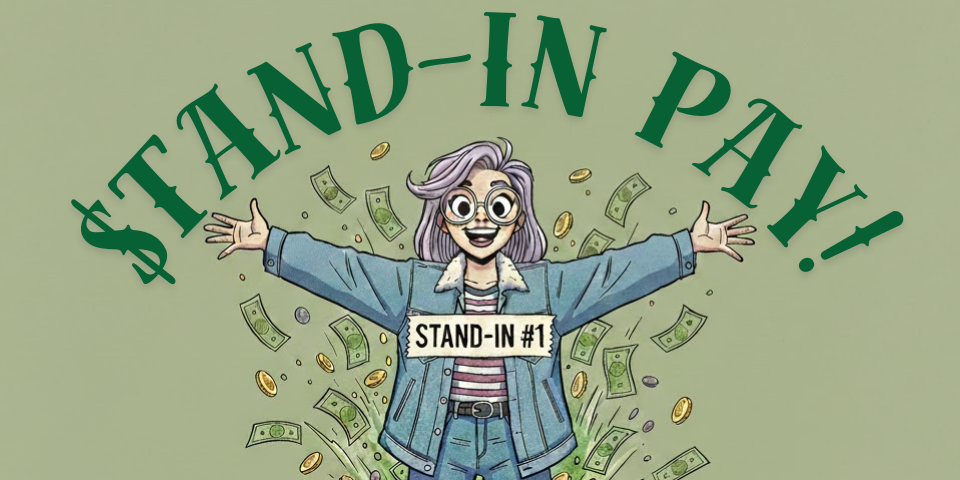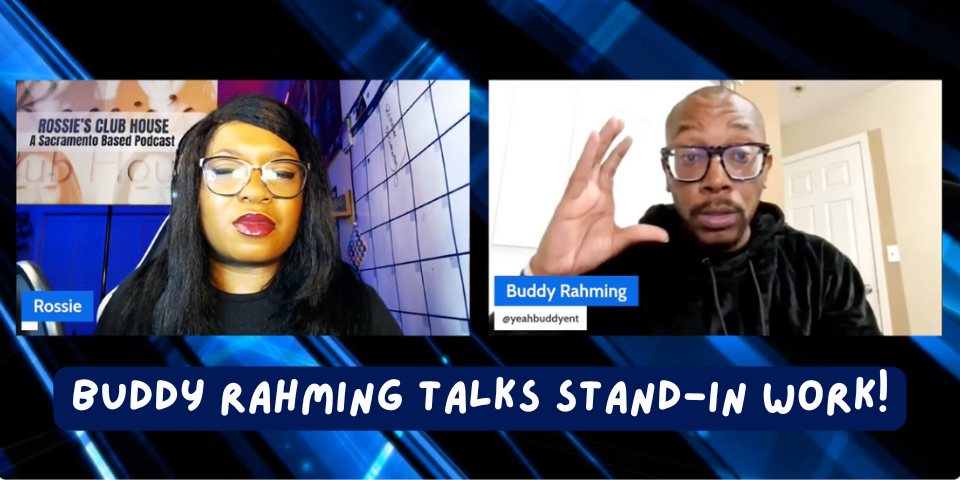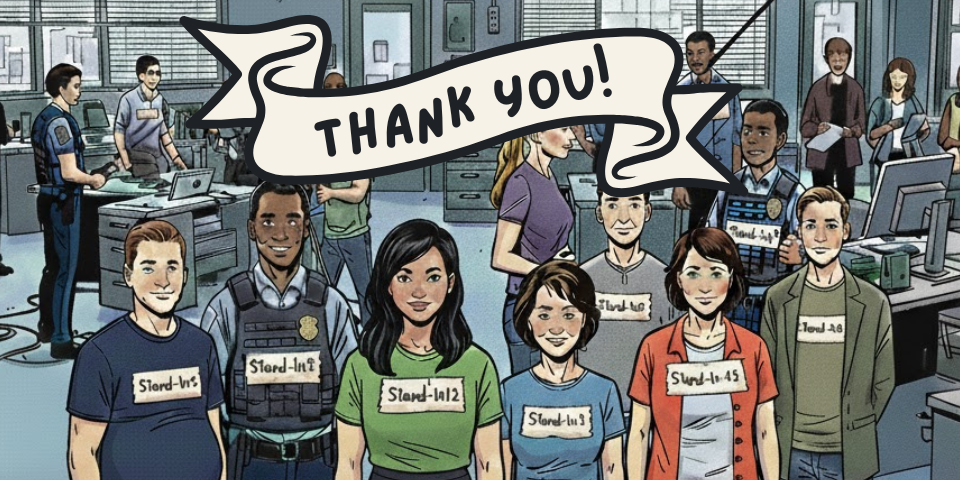When you’re standing in on a set, the background P.A. and the assistant directors will be responsible for you. They will give you instruction on where you need to be.
There is something to be said about waiting to be instructed before doing anything on set. But there is also something to be said about anticipating when you are needed.
When you anticipate being needed as a stand-in, you help those responsible over you to do their jobs and not have to worry as much about you. You also help the production day move along more smoothly.
You may even increase the potential you’ll be brought back as a stand-in in the future. A stand-in who knows what to do without being told is a stand-in who is often remembered and even requested in the future.
Anticipating = Knowledge + Conditioning
Anticipating your being needed as a stand-in is a skill. You can develop this skill with knowledge of the shooting routine. You can also condition this skill by just being on set regularly.
With knowledge of the routine, you will have a familiarity with the chances of your being needed at this given moment, in the next moment, or in the near future.
With just being on set regularly, you start to condition yourself to the various cues and requests you hear on set. You find you don’t have to be so vigilantly tuned in to the swarm of sound and movement encircling you. Instead, just as a pavlovian dog’s mouth waters at the sound of a dinner bell, eventually your body becomes so conditioned to the call of “Second team!” that you jump the moment it’s called, before you have a moment to think about it!
The Products of Anticipating
When you anticipate being needed to stand in, you tend to put yourself in a place to step into your job as soon as you’re needed.
Say that you are given a place off set for when you are standing down. This may mean that when second team is called, you have to cover some distance in order to get to set.
If you anticipate second team’s being called rather than wait for it to be called, you can get closer to set so that when second team is actually called, you are there to jump in immediately. You avoid delaying production when you anticipate being needed.
Or say that crew has the set and is setting up a shot, and the director of photography is watching the setup. At any moment, the DP may ask for second team to step in.
Waiting to be instructed to step in may mean that you keep the DP waiting. But anticipating stepping in may mean you beat the actual call for second team. Again, you avoid delaying production when you anticipate being needed.
When Anticipating Is a Con, Not a Pro
Granted, some kinds of anticipating can backfire when you’re standing in.
Anticipating is a bit worse at the end of a setup than at the beginning of one. For example, if you anticipate being excused from set and walk away from set before second team is officially excused, you may frustrate, say, the camera crew who is still using you to set up a shot.
But anticipating, say, when you need to step in at the beginning of a setup usually doesn’t result in problems. If you step in too early, you’ll usually just be asked to relax for a little bit as the crew sets up the shot and is ready to have you in.
Pointers for Conditioning the Skill of Anticipating
A set can be a chaotic environment, and it can be hard to process a lot of the noise and movement going on around you. You won’t know who is who, who is important, who is not that important to you.
Among the most important people to you on set is the DP. When you arrive to set, figure out who the DP is. See if you can train yourself to discern the DP’s voice from the crowd. If you do this, you may make it easier to zone in on the DP’s requests of you. Since some DPs speak softly, this pointer can be especially helpful in discerning the DP’s voice from all the other voices.
At the beginning of the day, review the common requests you hear as a stand-in, especially if they are requests that regularly trip you up. For example, at the beginning of the day, go over which side is camera-right and camera-left. Doing so will mean you won’t be as confused in fielding requests like “Look camera-right” and will be able to respond more quickly to such requests.
Try to predict the next event in the setup sequence or what the crew will next need of you. Try to guess what the DP wants you to do, the camera department wants you to do, and when you will be excused from standing in. See if you can get to the point where you can accurately “read the minds” of the different crew people before they request something of you. While you can never truly read the mind of someone else, you may be able to get pretty good at doing so as you build your skill at anticipating.
Do you have a tip for developing the skill of anticipating? What is your personal balance of anticipating vs. waiting to be instructed? Feel free to share in the comments below!
Discover more from Stand-In Central
Subscribe to get the latest posts sent to your email.






Leave A Comment